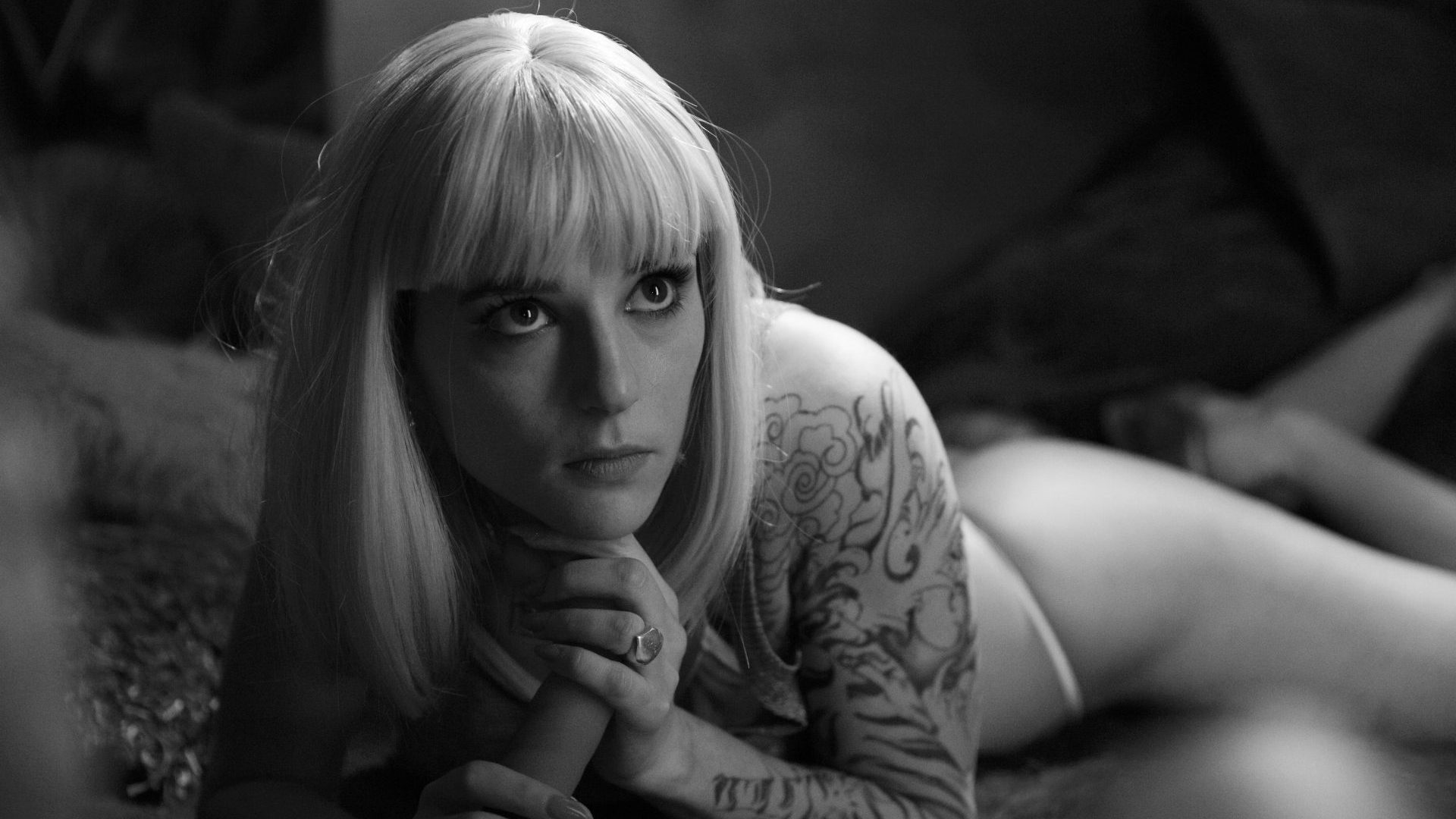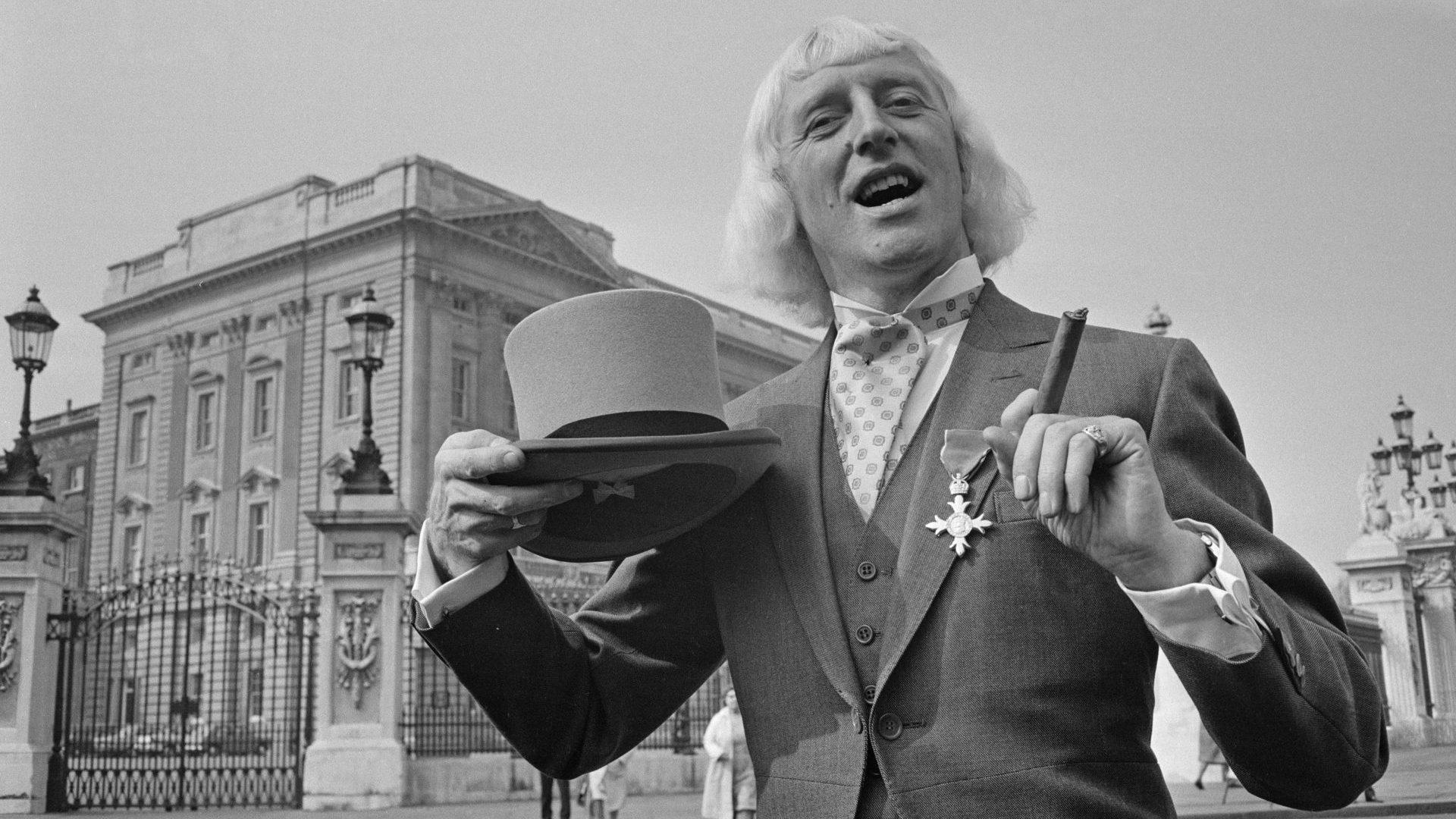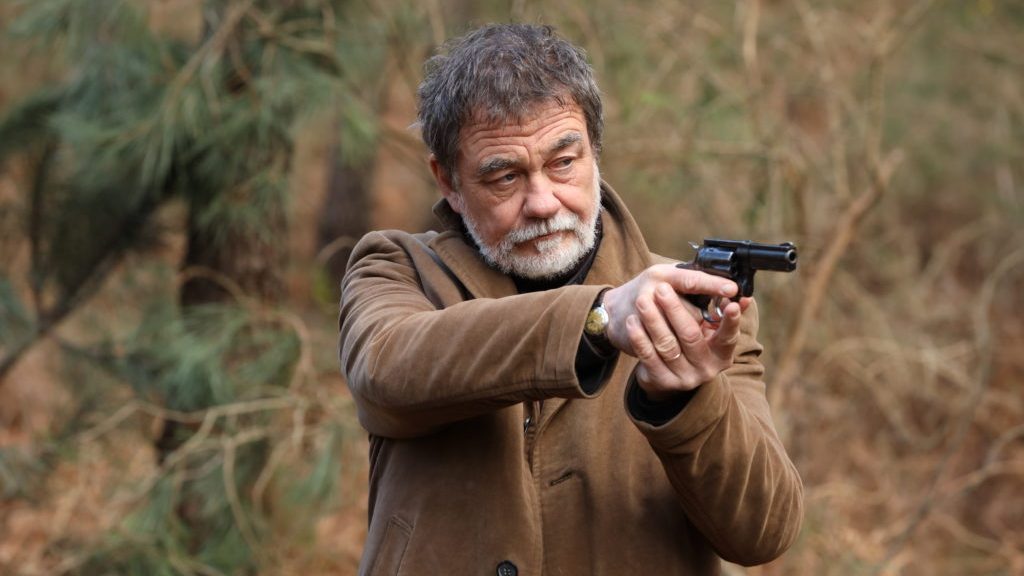Shot in crisp black and white amid the high rises and concrete of the futuristic-looking Les Olympiades estate, Paris, 13th District is a story of bed-hopping millennials searching for meaning in the city of love.
“It’s the first time I’ve felt old on a film set,” laughs its director Jacques Audiard. “They all kept asking my age!”
Born in 1952, Audiard is almost 70. His new star, Lucie Zhang, making her first screen appearance, is just 21 while the other main players, Noémie Merlant (star of Portrait of a Lady on Fire) and Makita Samba are in their early 30s.
Aside from the age thing, Audiard should rightly be seen as a leading light of contemporary French cinema, winner of the Palme d’Or at Cannes (for Dheepan in 2015), two Baftas (for A Prophet and The Beat My Heart Skipped) and 10 César awards.
“The world has changed,” he tells me from Paris. “I can see that but I wanted to understand that, to see how this new generation of the digital age behaved
compared to the world I came up in.”
The film charts the fluctuating loves of Emilie, Camille (a man) and Nora as well as a sex cam worker called Amber Sweet. It’s a sexy film and romantic-looking but its originality lies in its subversion of cliches, taking the classics
of the French New Wave and turning them inside out.
Audiard cites Éric Rohmer’s 1969 classic Ma Nuit Chez Maud as his inspiration, and the new film could be seen as a riffing update on the old one. “Because Rohmer’s film was very erotic but all the erotic charge was in
conversation, it’s all about restraint, you know, these men and women who just talk and talk all night and nothing happens?”
The director says he became fascinated with how the opposite is now the case. “Love is on an app now. You meet someone and you make love on the first night, or you just fuck but what happens then? They talk after, but does
that lead to eroticism? If not, where is it headed? I’m confident love does happen, can happen but in what form does it come now, how does it manifest itself? That’s what I wanted to explore with my characters here, and I thought it might lead to something funny.”
In the end, the film plays out more as a drama than anything like a romantic comedy although it is actually based on a series of comic books and graphic
novels by American illustrator Adrian Tomine. “Look, I know nothing about
comics, really,” admits Audiard, “so again this was a world I had to work to
understand and get to realise what it had to say about modern life and that it
could speak to me and my generation.”
In fact, he hired one of the leading names of France’s younger generation of film-makers, Céline Sciamma (Girlhood, Petite Maman and, of course, Portrait of a Lady on Fire) to write the screenplay with him. “Of course, she
knew the comic books!” explodes Audiard with some mock outrage. “Everyone young knows it, just not me. Also, Céline is a wonderful screenwriter as well as a fine director so she brings something special to her scripts, so good with dialogue and between us we got the essence of this world of young people sort of floating around, and they’re unique, this generation, and they live in a way no other generation has before. That’s what I was drawn to.”
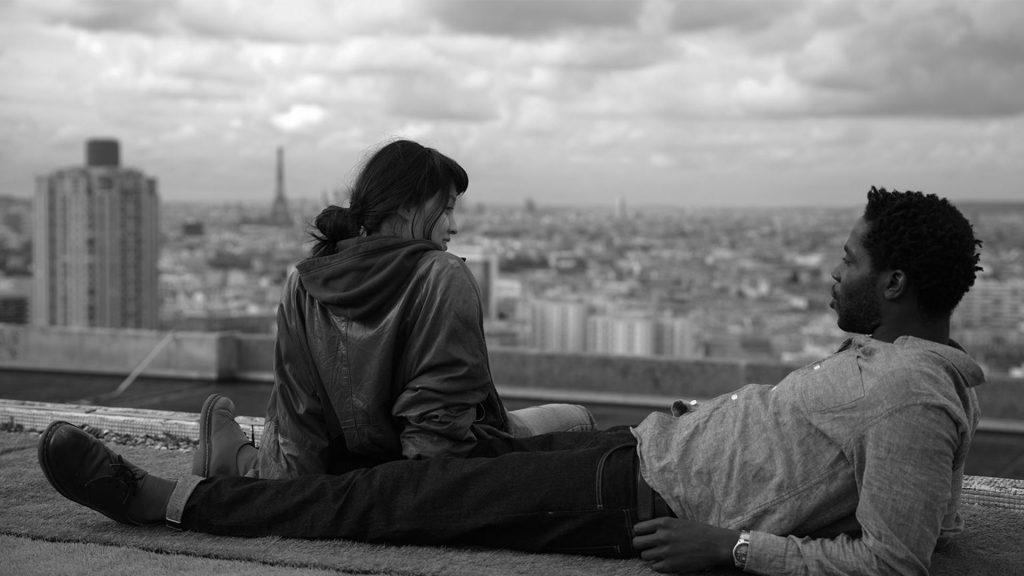
It’s interesting, then, that after all that, he still felt the need to revert to the New Wave for a reference, the movement that continues to cast such a long shadow over French cinema, French culture, even shooting in black and white like those hugely influential movies from Rohmer, Jean-Luc Godard
and François Truffaut.
When I first saw the new film, I felt Audiard was trying to redefine that nouvelle vague aesthetic for a new century, particularly with the inky black and white photography. He says, however, that the monochrome palette was not so much to pay homage to the old French looks but to make this version of Paris look more modern.
“I’ve shot all over Paris and you hit a wall sometimes, it’s a very preserved city, very romantic of course but I’ve been frustrated so many times by its lack of depth, visually, and lack of height,” he says. “So I wanted to find a
way of delivering a very modern side of the city and I felt black and white in this newly constructed neighbourhood, with its towers, made it more like an Asian metropolis, somewhere a bit alien.”
Which is why he also set it in Paris 13. The French title of the film is simply Les Olympiades, a very specific area of the 13th arrondissement, built between 1969 and 1974, consisting of eight tower blocks each just over 100 metres tall and all named after cities that have hosted the Olympic games. Set around a central esplanade, it is served by one of the most recent additions to the Metro system, a station called Les Olympiades that only opened in 2007.
Although originally intended to attract young professionals, the area has become home to Asian communities, of Chinese and Vietnamese, and is best known for its range of restaurants and supermarkets, often referred to as Paris’ Chinatown or Little Asia, although its proximity to some of the Sorbonne’s university campuses such as the new Denis Diderot at Paris Cite as well as the gleaming François Mitterand Bibliothèque National has led to influx – and flux – of students, writers and intellectuals, as the film demonstrates.
“Also, I used to live there,” reveals Audiard. “I loved it round there and I didn’t really want to leave but I was there for a good 10 years, watching
while this area was being built. I lived in a more historic quarter, much more
traditional, Butte-aux-Cailles, which is still there but such a contrast with the
towers. I watched it grow and evolve and it has always seemed to me such a
modern place, the most modern in all Paris. So I wanted to explore it again and I loved the energy I found there.”
This film is certainly a departure for Audiard who become one of Europe’s most admired film-makers with his gritty, crime-tinged thrillers such as Read My Lips, in which a thief (played by Vincent Cassel) exploits a deaf woman (played by Emmanuelle Devos) for her lip-reading skills so he can rip off a nightclub owner; The Beat My Heart Skipped, with Romain Duris as
piano-playing slum landlord; A Prophet, with Tahar Rahim working his way to top dog in a violent prison; and Dheepan which put a Sri Lankan refugee at the frontline of a drug war on an estate.
Audiard’s use of American genre influences such as the prison movie and crime flick (The Beat My Heart Skipped was a loose remake of 70s American
indie Fingers with Harvey Keitel) came to a natural head in 2018 with his first English-language film, The Sisters Brothers, a Western for which he attracted the star power of Joaquin Phoenix, John C Reilly and Jake Gyllenhaal. Hugely enjoyable but unusual as you’d expect and want from Audiard, the film was nevertheless one of his least successful commercially.
So does Paris, 13th District mark a return, or a departure for Audiard? One of his stars, Makita Samba, who plays couch-surfing literature teacher Camille, calls it a “renewal”.
“Jacques was surrounding himself with young people, new people,” he says. “I felt it was a new way of working for him – even the camera crew was a new outfit for him. He was looking to get our young energy but he was the most energetic on the set, he never allowed us to settle for a moment.”
Audiard’s big discovery on this film is Zhang, a French-Chinese actress in her first major role who has become a star and fashion icon since the film debuted at Cannes last July. “I think all the characters are a little lost in their lives,” she says. “Lost in love, work, family, relationships and they start to make connections and it ends in love or hate. The film has taught me everything, about life and about acting, and all Audiard said to me was that I had to completely leave my old self, my old body and live a new life as my character. He was interested in listening to what we had to say as young people. I think he learned some things from us, too.”
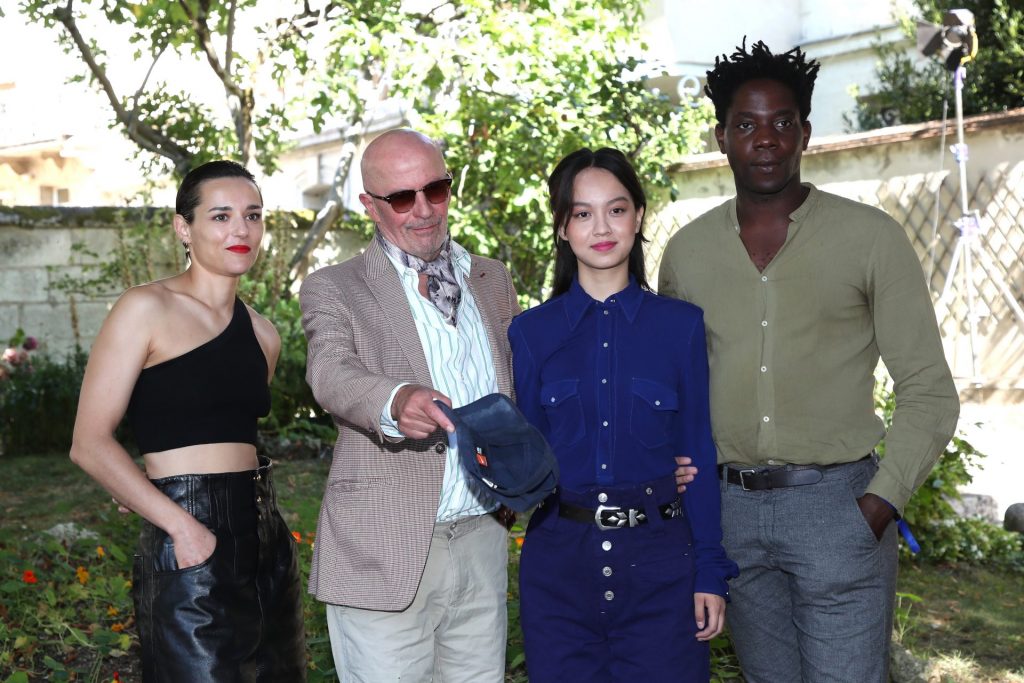
Audiard himself has always been conscious of cinematic traditions. His own father, who died in 1985, was a prolific screenwriter and director – something Jacques wanted to distance himself from as he looked to forge a
new identity for French film. “My father and his generation were literary types, attracted to books and the theatre as their primary impulse, not the cinema. But for me, it was all about cinema, images, movies, right from the start,” he explains. “So now I see that my reaction is only normal – I’m aware that each generation must make its own style, break with the past to move forward. There’s always a change of generation but I am still here making films, so I have to acknowledge the future.”
Apart from the different attitudes to sex and conversation, how is this new
generation having an effect on cinema? Shooting during the pandemic was one challenge and the film’s sex scenes required, for the first time, that he
work with an intimacy co-ordinator. He says he found that reassuring and he
left the actors to explore those moves themselves, without his involvement,
partly restricted by Covid protocols.
But, for Audiard, it isn’t the new ways of on-set behaviour and health protocols that represent the biggest change. Coming out of the pandemic,
he feels, has left cinema facing a new and uncertain future. As the characters in Ma Nuit Chez Maud all those years ago flexed their moral and
philosophical concerns, existential issues are now facing cinema itself, not just the characters in it.
“We are in an extreme state of confusion,” he says. “The pandemic has been a victory for the digital age and this has cut us from reality. My generation, I fear they may not come back to the cinema. All I know is that cinema was invented to help us understand what was real but digital is creating an alternative reality. It’s distancing us from the collective, experiential, auditive and sensory thing that is cinema, this act of watching movies together in a theatre.”
I remark that I found it odd, in his film, that these young, cool clever characters went to music gigs and worked in call centres and did karaoke and found sex and love online but never watched a movie or even talked about movies. “You’re right, that is odd but I found it to be true,” he agrees. “They don’t watch movies. Young people do not see the world or experience realities in the same way any more. I am struggling to find a way to express it, but it’s almost as if we must invent a new word for it – we ‘watch’ a film, we ‘go to see’ a movie, these expressions are not fit for what we do now and for how we interpret cinema.”
Having been such a master of the form and his game – I put A Prophet at
No1 on my 50 Great European Movies list for this paper last year – for the first 20 years of this century, one senses Audiard trying to re-exert a grip in the post-#MeToo, post-pandemic, post-theatrical world. Like everyone else, even he has directed episodes for series but TV is not his natural home.
He is in fact attempting another of the great American genres next, making
a musical, shooting in Mexico, and featuring a trans character. “It’s very
baroque, voila,” is all he’ll say.
But just for the moment, reflecting on age and the shifting sands of cinema, it feels a little like the restless, rootless, floating, cohabiting existence of the
young generation of Paris, 13th District has got to the veteran director. So he’s
off again, never settling, never delivering quite what you expect of him.


